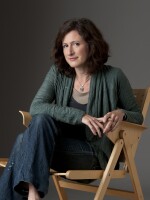STEVE INSKEEP, host:
The Nobel Prize in literature was awarded this morning to an English playwright, Harold Pinter. In its brief announcement, the Swedish academy said Pinter's work, quote, "uncovers the precipice under everyday prattle and forces entry into oppression's closed rooms." In fact, his first performed play in 1957 was called "The Room." He's had many famous plays since. NPR's Neda Ulaby joins us now to talk about him.
And let's learn a little bit more about Harold Pinter.
NEDA ULABY reporting:
Sure, Steve. He was born in the London borough of Hackney. He was the son of a Jewish tailor. His most formative memory, he often says, was being bombed and evacuated in London during World War II. He attended RADA, the Royal Academy of Dramatic Arts, as a teen-ager, and he wrote that first play of his in just a few days. His second, "The Birthday Party," was written in 1957. It was a notorious flop, but now it's one of his most performed plays. It is, in fact, one of over 30 plays. He's actually written a novel and several poems. He's married to the biographer Lady Antonia Fraser, and he loves a good game of cricket. He's the president of a cricket club called the Gaieties.
INSKEEP: Hm. Now you mentioned that memory of being bombed during World War II. Is that one of the reasons that so many people see a sense of menace in his plays?
ULABY: That is certainly a strong structural element, I think, in Harold Pinter's psyche, but he was also very much influenced by Samuel Beckett, who also won the Nobel Prize and who he counted as a close friend until he died. Pinter is often lumped together with the theater of the absurd, although that's not quite right. His plays are often set in very stifling little rooms with people saying vacuous things to each other that become more and more deadly, until a kind of naked power play is revealed that's punctuated by wrenching silences. And that is what people mean when they say Pinteresque.
INSKEEP: Hm. So this was a delayed choice?
ULABY: It was a delayed choice, and the reasons remain a bit mysterious. No one predicted Harold Pinter. In fact, there was talk of a power struggle, another kind of power struggle, in the Nobel board, with people campaigning both for the Turkish writer Orhan Pamuk, and for the Syrian writer Adoniyis. The bookmakers did not have Harold Pinter on their list of the shortest odds. In fact, the bookmakers, I think, tend to be generally wrong.
INSKEEP: Is he just a compromise `safe' choice?
ULABY: I wouldn't call Harold Pinter a safe choice. He is a leading light of Anglophone literature and he's a very strong--he actually retired from writing plays, so he said earlier this year, to dedicate himself purely on political activism. He's taken very strong stances against the war. But that said, he hasn't quite stopped writing plays. He premiered a new work on the BBC Radio 3 just this last week. It's called "Voices," and it is in part an indictment of torture.
INSKEEP: Neda, thanks very much.
ULABY: Thank you.
INSKEEP: And Harold Pinter, by the way, still writing then, more or less, or at least speaking out at the age of 75, and he's the winner of the Nobel Prize in literature.
You can read more about all this year's Nobel winners from peace to physics at our Web site, npr.org.
This is MORNING EDITION from NPR News. I'm Steve Inskeep. Transcript provided by NPR, Copyright NPR.






